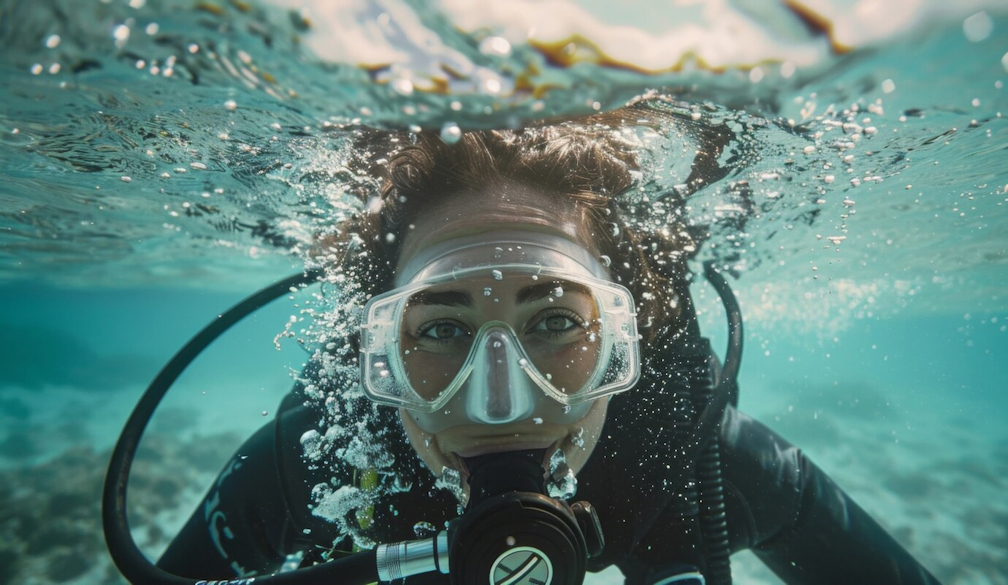Scuba Diving Safety Tips for Beginners and Experts

Scuba diving opens up a mesmerising underwater world teeming with vibrant marine life and breathtaking landscapes. Whether you're a novice diver or an experienced enthusiast, safety should always be your top priority. Here are essential scuba diving safety tips for both beginners and experts to ensure a safe and enjoyable dive.
1. Get Proper Training and Certification
For Beginners:
- Enroll in a reputable scuba diving certification course. Organisations like PADI (Professional Association of Diving Instructors) and NAUI (National Association of Underwater Instructors) offer comprehensive training that covers theoretical knowledge and practical skills.
- Never attempt to dive without proper certification. This ensures you understand the basic principles of diving, safety procedures, and how to use your equipment correctly.
For Experts:
- Continue your education by taking advanced courses. Specialisations such as deep diving, night diving, and underwater navigation enhance your skills and knowledge.
- Stay current with the latest safety protocols and diving techniques by attending refresher courses and workshops.
2. Plan Your Dive and Dive Your Plan
For Beginners:
- Always dive with a buddy and establish a dive plan before entering the water. Discuss depth limits, dive duration, and emergency procedures.
- Conduct a thorough pre-dive safety check (BWRAF: BCD, Weights, Releases, Air, Final OK) to ensure all equipment is functioning properly.
For Experts:
- Maintain meticulous dive planning, especially for complex or deep dives. Use dive tables or dive computers to plan your ascent and avoid decompression sickness.
- Ensure that your dive buddy is equally experienced and review emergency procedures together.
3. Monitor Your Air Supply
For Beginners:
- Regularly check your air gauge and adhere to the rule of thirds: one-third of your air supply for the descent, one-third for the ascent, and one-third as a reserve.
- Never push your limits; ascend with a minimum of 500 psi (or 50 bar) remaining in your tank.
For Experts:
- Develop a habit of frequently monitoring your air supply and practice efficient air consumption techniques.
- Use redundant air sources, such as a pony bottle, for deep or technical dives.
4. Ascend Slowly and Safely
For Beginners:
- Follow the recommended ascent rate of no more than 30 feet (9 meters) per minute to avoid decompression sickness.
- Perform a safety stop at 15 feet (5 meters) for 3 to 5 minutes at the end of each dive to allow your body to expel excess nitrogen.
For Experts:
- Adhere to a conservative ascent rate and include additional safety stops on deeper dives.
- Use dive computers to monitor ascent speed and nitrogen levels accurately.
5. Maintain Proper Buoyancy Control
For Beginners:
- Practice buoyancy control to avoid accidental contact with the seabed, coral reefs, or marine life. This protects both you and the underwater environment.
- Use your BCD (Buoyancy Control Device) and breath control to maintain neutral buoyancy throughout the dive.
For Experts:
- Fine-tune your buoyancy skills to minimise air consumption and improve underwater maneuverability.
- Consider using a dive weight calculator to achieve optimal buoyancy based on your gear and diving conditions.
6. Stay Aware of Your Surroundings
For Beginners:
- Keep an eye on your dive buddy and maintain constant communication through hand signals.
- Be mindful of potential hazards such as currents, sharp corals, and marine life. Maintain a safe distance from unfamiliar or dangerous species.
For Experts:
- Enhance situational awareness by frequently scanning your surroundings and monitoring your dive buddy’s position.
- Develop a keen understanding of local dive conditions, including currents, visibility, and weather patterns.
7. Take Care of Your Equipment
For Beginners:
- Regularly inspect and maintain your diving gear. Properly rinsing and storing your equipment after each dive extends its lifespan and ensures reliability.
- Familiarise yourself with your equipment's functions and practice emergency procedures, such as mask clearing and regulator recovery.
For Experts:
- Schedule professional servicing for your diving gear, especially regulators, BCDs, and dive computers.
- Invest in high-quality equipment and consider redundancies for critical items like regulators and dive computers.
Conclusion
Scuba diving safety is paramount for both beginners and experts. By adhering to these safety tips and continuously enhancing your skills and knowledge, you can enjoy the wonders of the underwater world while minimising risks. Always remember that proper preparation, vigilance, and respect for the marine environment are key to a safe and rewarding diving experience.



